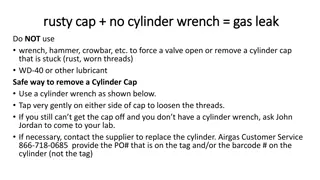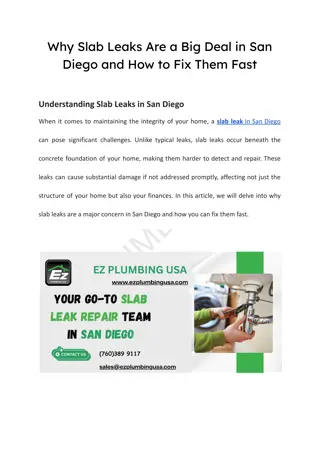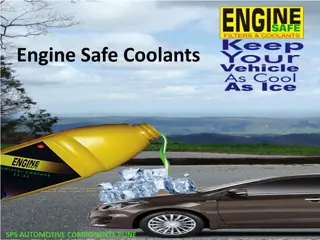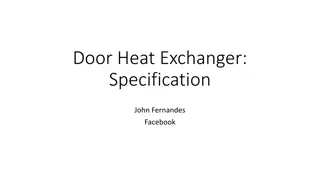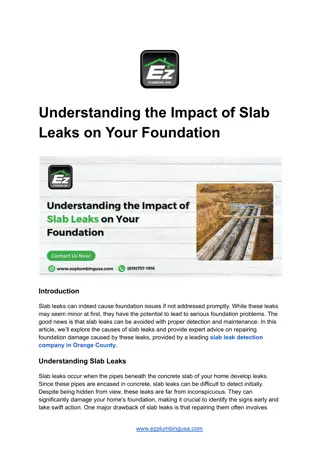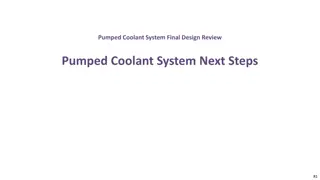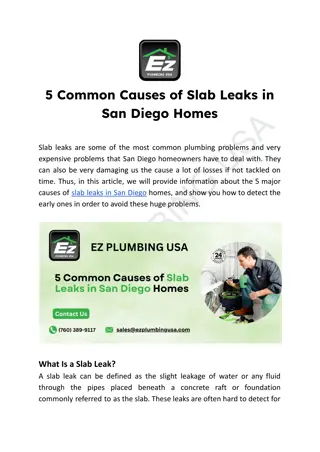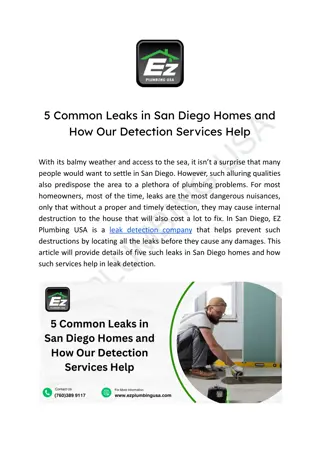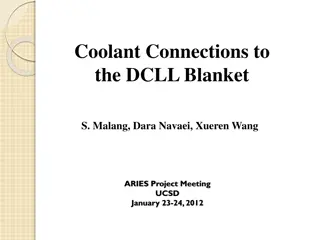How to check for coolant leaks on a BMW
To check for coolant leaks on your BMW, inspect the radiator, hoses, water pump, and coolant reservoir for visible leaks or cracks. Look for puddles under the car and monitor coolant levels. A pressure test can help detect hidden leaks. If you notice
Uploaded on Mar 21, 2025 | 1 Views
Download Presentation

Please find below an Image/Link to download the presentation.
The content on the website is provided AS IS for your information and personal use only. It may not be sold, licensed, or shared on other websites without obtaining consent from the author.If you encounter any issues during the download, it is possible that the publisher has removed the file from their server.
You are allowed to download the files provided on this website for personal or commercial use, subject to the condition that they are used lawfully. All files are the property of their respective owners.
The content on the website is provided AS IS for your information and personal use only. It may not be sold, licensed, or shared on other websites without obtaining consent from the author.
E N D
Presentation Transcript
How to check for coolant leaks on a BMW?
A properly functioning cooling system is essential for maintaining your BMW s engine performance and preventing overheating.
Coolant leaks are a common issue that, if left unchecked, can lead to serious engine damage and costly repairs.
Whether youve noticed a warning light on your dashboard, a sweet smell from your engine bay, or visible puddles under your car, diagnosing a coolant leak early can save you time and money.
In this guide, well walk you through the steps to check for coolant leaks on your BMW, from visual inspections to pressure tests, ensuring your vehicle stays in peak condition.
The table below outlines common signs of coolant leaks, possible causes, and the recommended actions to take:
Possible Causes Recommended Action Signs of Coolant Leak Coolant warning light on dashboard Low coolant level, radiator or hose leak Inspect coolant level and check for leaks Coolant evaporating from a leak Check for wet spots around hoses & radiator Sweet smell from engine bay Cracked hose, faulty water pump, radiator leak Identify leak source and repair/replace Puddles under the car Insufficient coolant, thermostat failure Inspect coolant flow and thermostat Engine overheating Stop driving immediately and check system Significant coolant loss, overheating issue Steam coming from the hood
Checking the Coolant Reservoir: Early Signs of Leaks and Potential Issues
1 . INSPECT THE COOLANT RESERVOIR
Check the coolant level in the reservoir; low levels may indicate a leak. Look for cracks, leaks, or stains around the reservoir cap and tank.
2 . LOOK FOR VISIBLE PUDDLES UNDER THE CAR
Park your BMW on a dry surface and check for coolant puddles. Coolant is typically green, blue, or pink and has a distinct sweet smell.
3. EXAMINE HOSES AND CONNECTIONS
Inspect radiator hoses and connections for cracks, wear, or leaks. A soft or brittle hose may indicate deterioration, increasing the risk of a coolant leak.
4. CHECK THE RADIATOR FOR LEAKS
Look for wet spots, corrosion, or white residue on the radiator. A damaged radiator can cause coolant loss and lead to overheating issues.
5 . INSPECT THE WATER PUMP FOR LEAKS
Check around the water pump for coolant stains or leaks. A failing water pump often leaks from the weep hole, indicating it needs replacement.
6. MONITOR ENGINE TEMPERATURE
An overheating engine can signal coolant loss. If your temperature gauge rises frequently, inspect the cooling system for leaks or blockages.
Use a coolant system pressure tester to detect hidden leaks. This test pressurizes the system, helping you identify small leaks that may not be visible.
8. LOOK FOR WHITE EXHAUST SMOKE
White smoke from the tailpipe can indicate coolant entering the combustion chamber, potentially due to a blown head gasket or cracked cylinder head.
Regularly inspecting your BMW s cooling system helps prevent costly repairs and engine damage. Identifying coolant leaks early ensures optimal performance and reduces the risk of overheating- related issues.
If you detect a coolant leak, address it promptly by repairing or replacing faulty components. For complex issues, seek professional assistance to maintain your BMW s reliability and efficiency.
https://fifthgear.biz/cross-roads-location/ https://www.facebook.com/FGACrossRoads/ https://www.youtube.com/@fifthgearautomotivecrossroads Fifth Gear Automotive,7 351 US- 37 7 , Cross Roads, TX 7 6227 . 81 7 -587 -1 964








